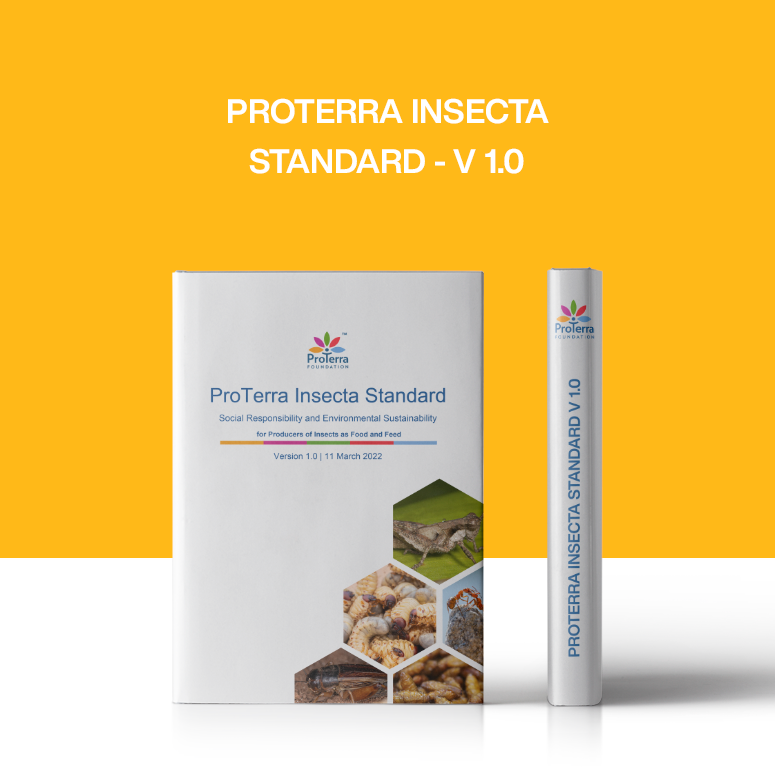ProTerra Insecta certification program

Climate variability and extremes are among the drivers causing hunger and undernourishment to reach critical levels: millions of people worldwide suffer from food insecurity and malnutrition as they can´t afford healthy diets[1]. In 2017, 8.9 % of the world’s population was reported undernourished, having their caloric intake below minimum energy requirements.[2] Furthermore, the world population is projected to increase to 9.7 billion by 2050, representing a nearly 24% increase over 2020.[3]
One of the solutions to tackle these challenges is to invest in alternative protein sources sustainably produced, with no impact of land conversion or deforestation, and reduced emission of greenhouse gases. Edible insects contain high-quality protein, vitamins and amino acids for humans, and have traditionally been used as food and feed in several parts of the world, potentially contributing to food security, livelihoods and the environment.[4]
To cover these sustainable topics in the insect food/feed supply chains, ProTerra Foundation has created the ProTerra Insecta Standard , which includes an additional series of requirements related to human rights, workers’ health and safety, relation with the community, control of the release of pollutants to the air and water, among others.
The construction of this standard has been an open process and joint effort of different stakeholder groups who were able to provide specific feedback about creating or removing indicators, modifications to original texts, and overall suggestions.
We are glad that ProTerra Foundation is also offering solutions in this area, always aiming at sustainability.
Please, do not hesitate to contact us for more information or in case of questions.